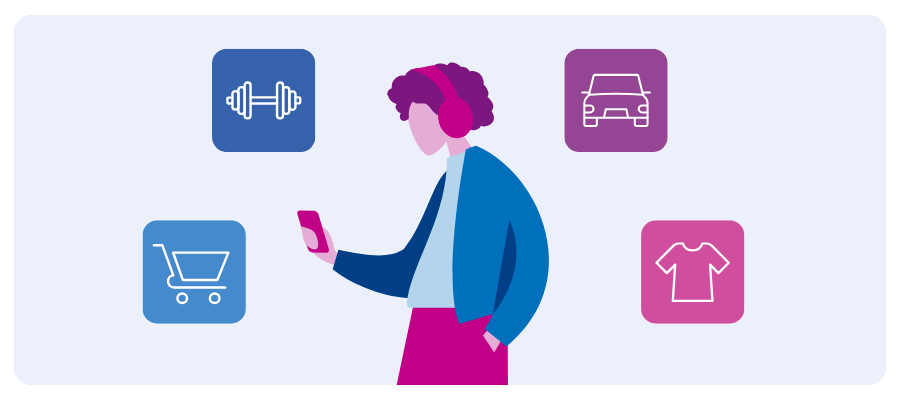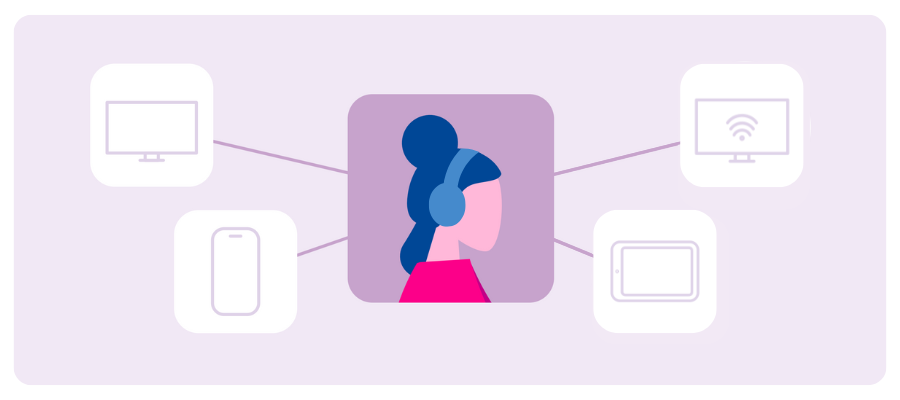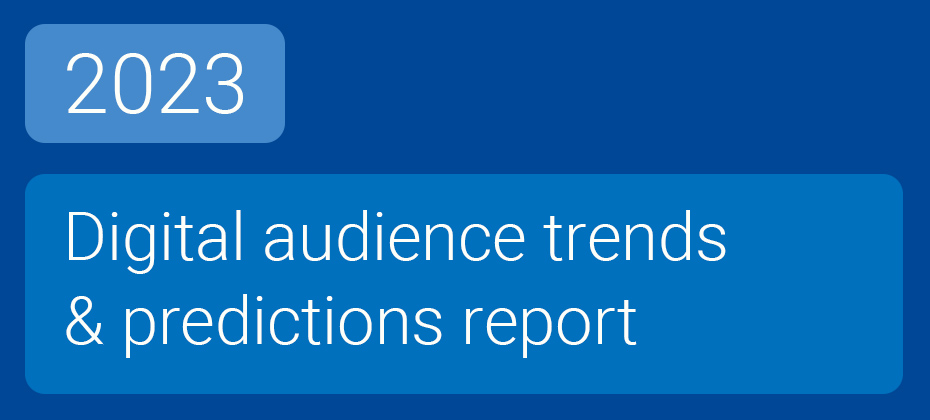
We spend our days surrounded by screens: at work, at home, and everywhere in between. But audio is the one channel that moves with us, from morning routines to evening commutes, from workouts to household chores. More than two-thirds of U.S. consumers will listen to digital audio every month this year, making it one of the fastest-growing ways to connect with audiences. Experian and Audacy are working together to solve the challenges of fragmented listening, cross-platform targeting, and campaign measurement, helping brands reach people in the moments other channels can’t.
Why audio sticks with us
Audio fits into life’s in-between moments, from the commute to the workout to the chores, when other media can’t. Unlike video, it doesn’t demand full attention; it joins the flow of daily routines. This makes audio uniquely personal, creating connections that other formats can’t replicate.

Audacy’s expertise in understanding listener behavior ensures that audio campaigns feel like a natural part of daily life. Experian’s data helps advertisers identify the right audiences, while Audacy ensures the message is delivered at the right time. Together, we help brands create campaigns that resonate deeply with listeners. By meeting audiences in their moments of focus, audio becomes a powerful tool for building meaningful and lasting connections.
“Audio is a companion in people’s daily rituals. Whether it’s doing dishes, folding laundry, or going for a run, you have audio going in your ears, and you’re really engaged with it. From an advertising perspective, that’s incredibly powerful because listeners are paying attention to the content.”
AudacyKevin Greenwald, SVP of Advertising and Audience Products
Making sense of scattered listening habits
Today’s listeners consume audio across a variety of devices and platforms. Devices like smart speakers and smart home hubs now account for over 27% of digital audio time spent daily among U.S. adults, highlighting the growing role of connected devices in audio consumption. When listeners bounce between apps, stations, and devices, it’s easy for advertisers to lose track of them. Audacy’s advanced platform capabilities, combined with Experian’s identity solutions, simplify this process by providing a unified view of audience behavior, ensuring campaigns remain cohesive.

Audio is highly adaptable, letting advertisers tweak a message on the fly by shifting tone, length, or format to stay relevant in the moment. This flexibility ensures that campaigns remain cohesive and impactful, no matter where or how listeners engage.
“Audio has a degree of flexibility that other channels don’t. You’re not tied to a programming clock, and ad lengths can vary. It’s also easy to create a great audio ad quickly, which makes it a channel ripe for experimentation and innovation.”
AudacyKevin Greenwald, SVP of Advertising and Audience Products
Following listeners wherever they go
Today’s listeners don’t stay in one place: they bounce from live radio in the morning to streaming music during the day, then wind down with a favorite podcast at night. For advertisers, that creates a challenge: how do you keep up with an audience that’s always moving? Without a unified view of the listener journey, campaigns can lose impact. With the right insights, though, every handoff becomes an opportunity to stay relevant and connected.

Audacy’s platform, combined with Experian’s identity solutions, bridges these gaps. Together, we help you follow your audience wherever they go, creating consistent experiences that drive results. This approach improves targeting and ensures that messages remain impactful.
“I hope that there’s a day coming where we can understand ad exposure in the car as well as more cars are connected and things like that. That would be really powerful.”
AudacyKevin Greenwald, SVP of Advertising and Audience Products
Your audience is listening, let’s make sure they hear you
Audio helps you connect with your audience in moments other channels miss. With Experian’s marketing data and Audacy’s expertise, you can simplify cross-platform targeting, improve campaign measurement, and create messages that truly resonate. Let’s work together to make your message heard.
Let’s talk audio strategy. Contact us today
About our experts

Kevin Greenwald
SVP of Advertising and Audience Products, Audacy
Kevin Greenwald is the SVP of Advertising & Audience Products, where he partners closely with Audacy’s sales team to deliver leading ad product and measurement capabilities for their clients.

Crystal Jacques
VP of Enterprise Partnerships, Experian
Crystal Jacques is the VP of Enterprise Partnerships, leading Experian’s go-to-market team across all verticals. With over ten years of experience in the Identity space, Crystal brings a wealth of expertise to her role. She joined Experian in 2020 through the Tapad acquisition, following her successful stint as the head of Global Channel Partnerships for Adbrain, which The Trade Desk later acquired.
Latest posts

Experian kicked off the AdTech year at CES in Las Vegas. Read our CES AdTech recap to learn our key takeaways from the event for the AdTech industry.

Our 2023 forecast for digital audience strategies in AdTech. We reveal the top advertising platforms and the best audience strategies by vertical.

Discover how Experian pairs DASH data with Experian Marketing Data to help marketers develop better TV audience buying strategies.